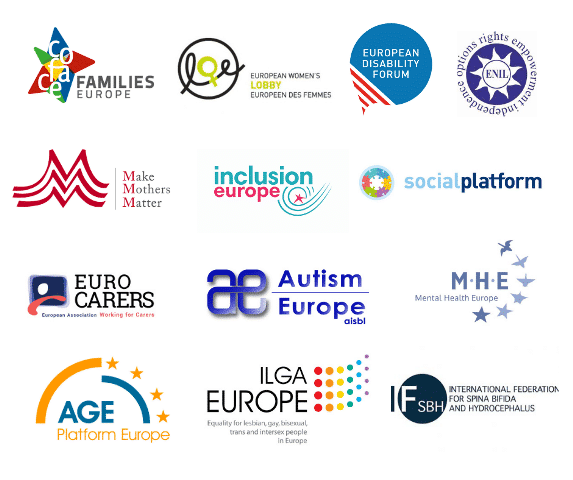
Allowing a better match between work and private life is key to address demographic change in Europe, in particular to improve gender equality in old age, support informal care and promote longer working lives. This is why AGE is actively advocating, together with other European NGOs, for a strong European work-life balance directive, raising political awareness of the social, economic and societal outcome of improving work-life balance in Europe.
Yet, the Commissions’ proposal to introduce a paid carers’ leave of five days per year for workers who provide care to a relative with a disability is heavily under threat. While the European Parliament has upgraded the proposals from the European Commission, linking remuneration during carers’ leave to 78% of an employees’ salary, the Council position has removed all references to a minimum duration of carers’ leave and remuneration. The next couple of weeks of trilogue between Council, Commission and the Parliament are crucial to shape the form of the future legislation. AGE is concerned that this means missing the once-in-a-decade chance to formally recognise informal carers for their huge contribution to intergenerational solidarity and European economies. AGE has been calling for years upon the EU to take initiatives that enable informal carers to continue working and to be supported, an ever more pressing need in the context of demographic change.
On 2nd November 2018, in view of the upcoming European elections and the ongoing trilogue negotiations, we issued a joint statement, calling for an EU agreement on a work-life balance directive that includes:
- a life-cycle approach and paternity, parental and carers’ leave schemes;
- definitions of support and leave schemes that are consistent with the UN Convention on the Rights for Persons with Disabilities (UN CRPD), ratified by the EU and all Member States;
- a European paternity leave of at least ten days paid at least at 80%;
- an improved parental leave scheme, with at least four months non-transferable paid at least at 78% of previous earnings;
- a European carers’ leave scheme of 5 days/year paid at least 78% of previous earnings;
- the right to request flexible working arrangements for parents and carers (telework, reducing working time etc);
- the recognition of family diversity, by opening access to these provisions to rainbow and adoptive families, by including special provisions for single parents and parents and children with disabilities, and by recognizing the right of persons in need of care and support to choose their carer.
Read the full joint press release
Read more on AGE call on work-life balance in this article on our joint letter sent to the EU employment and social affairs ministers in June 2018.
For more information on AGE work on work-life balance, please contact Philippe Seidel, philippe.seidel@age-platform.eu






